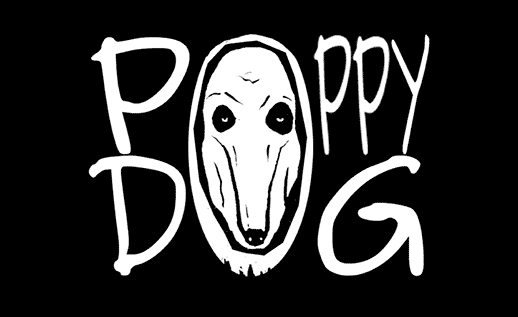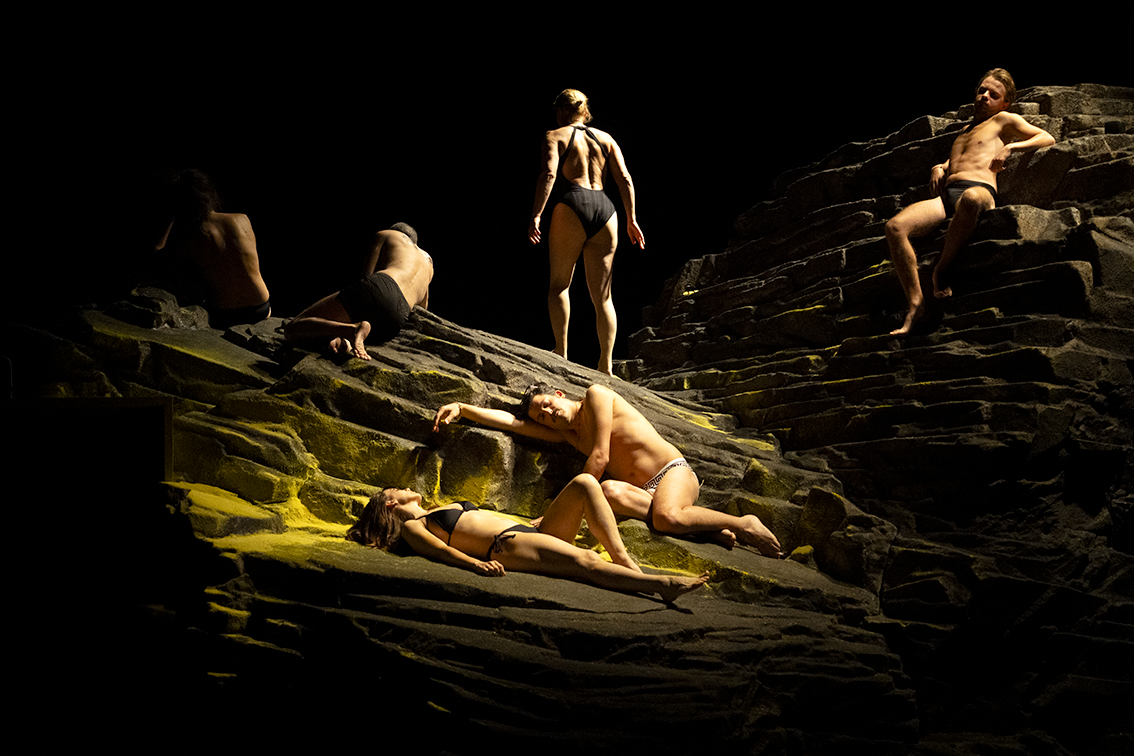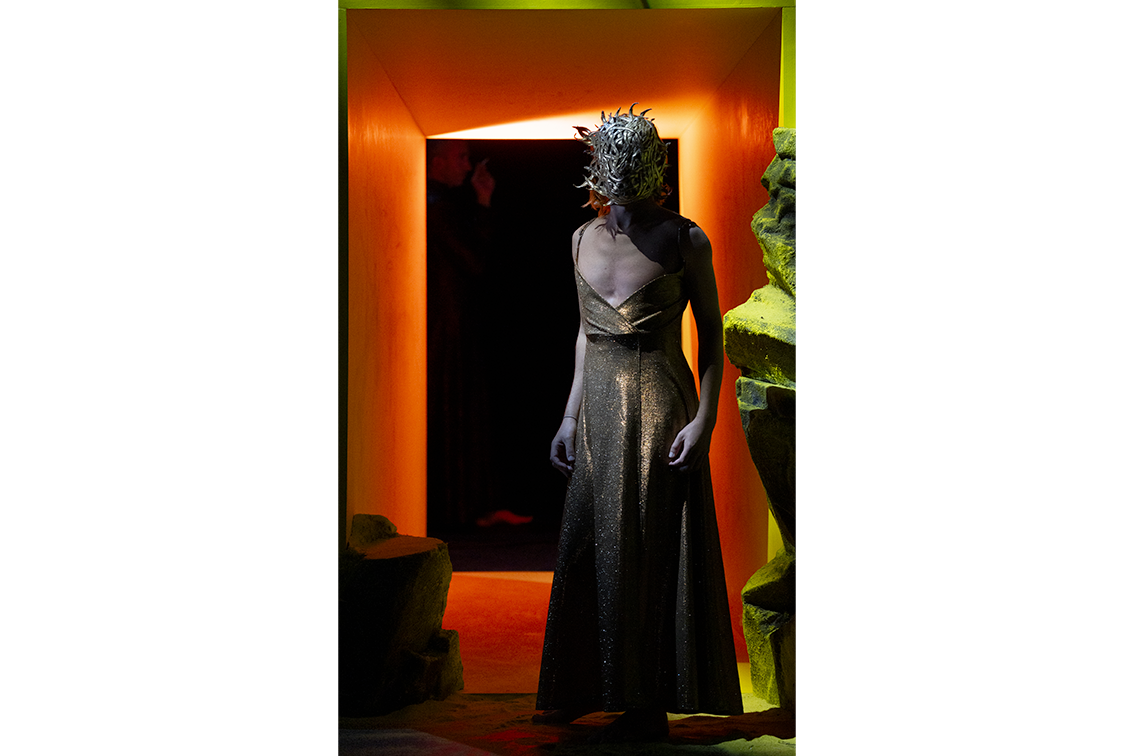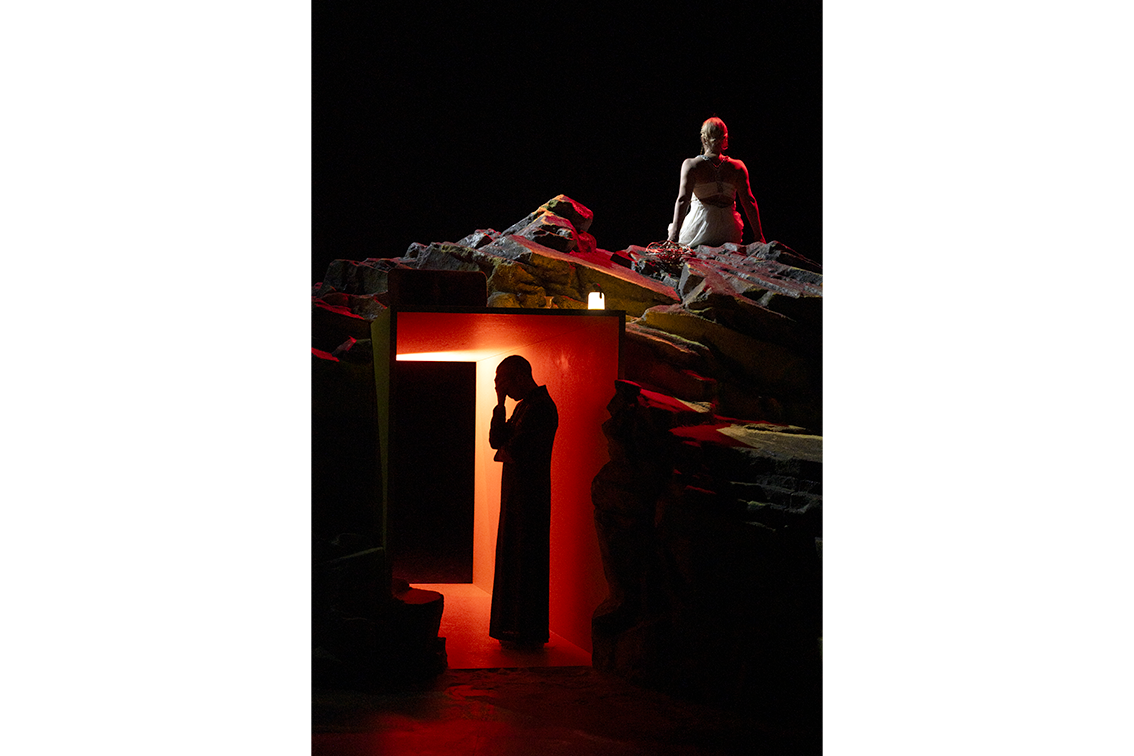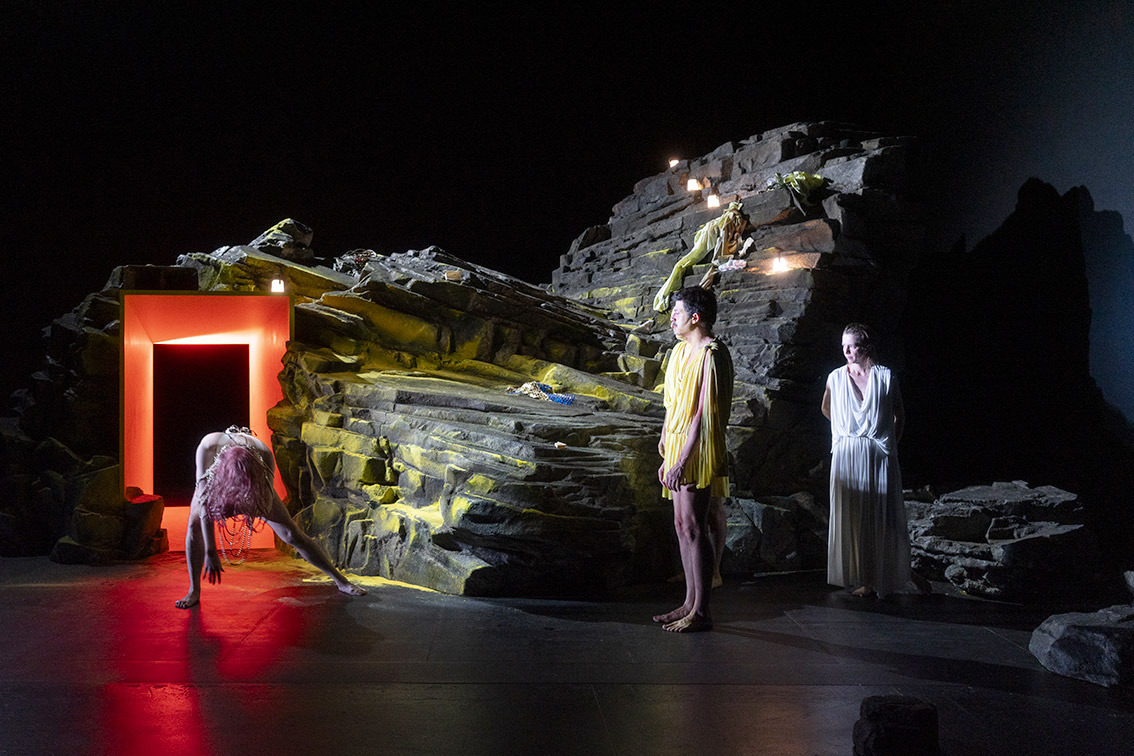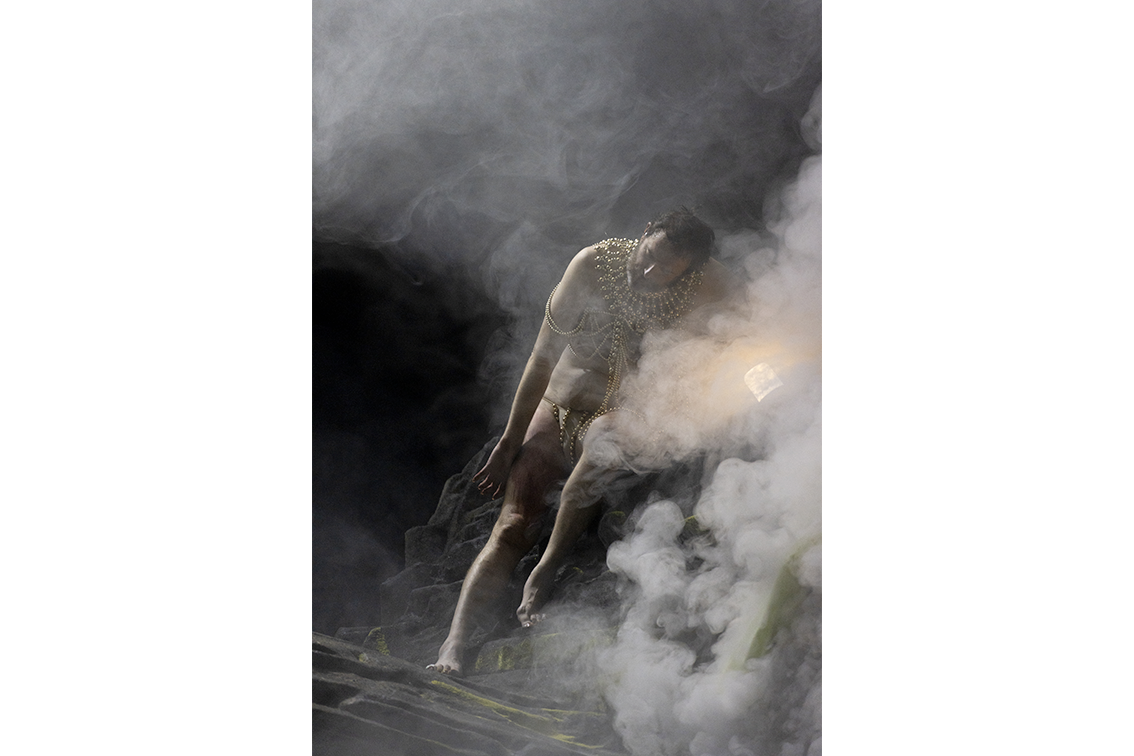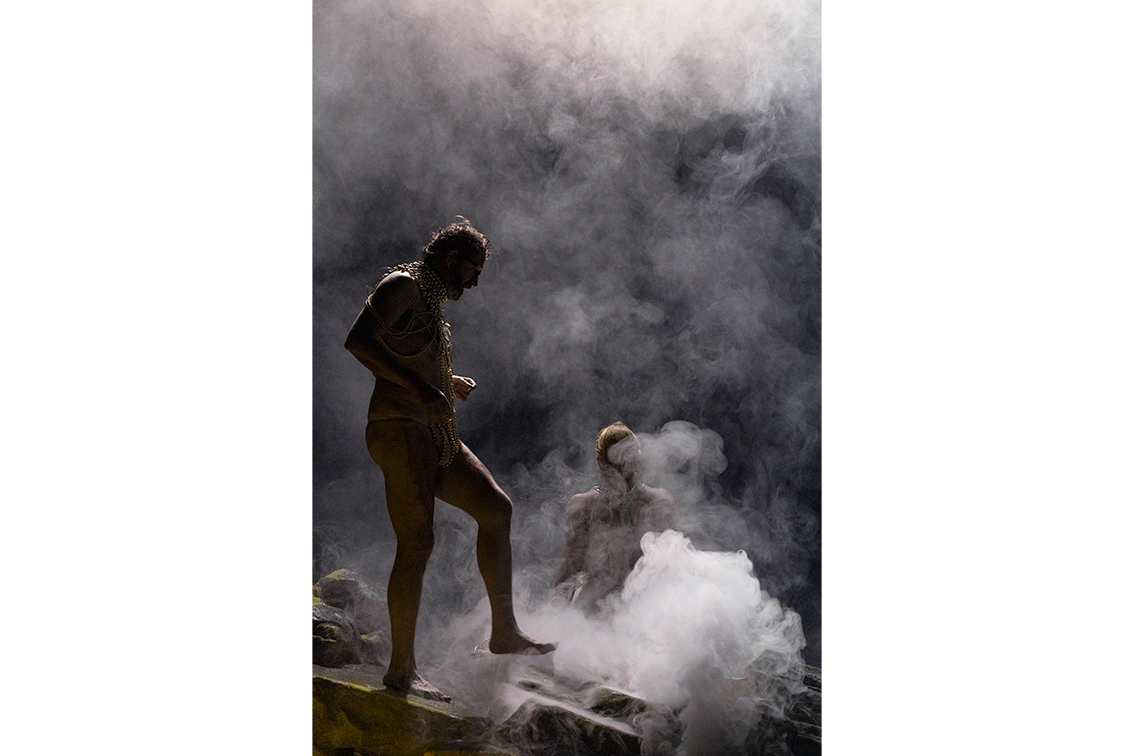CALIGULA
Text Albert Camus
Conception and direction Jonathan Capdevielle
Creation 2023
CAST
TEXT
Albert Camus
CONCEPTION AND DIRECTION
Jonathan Capdevielle
ASSISTANT DIRECTOR (CREATION)
Christèle Ortu
ASSISTANT DIRECTOR (ON TOUR)
Christèle Ortu or Jade Maignan
PERFORMERS
Adrien Barazzone, Jonathan Capdevielle, Dimitri Doré, Jonathan Drillet, Michèle Gurtner, Arthur B. Gillette, and Ignacio Plaza Ponce (alternating), Jennifer Eliz Hutt, Jérôme Masson, Anne Steffens, Jean-Philippe Valour
LIVE MUSICIANS
Jennifer Eliz Hutt, Arthur B. Gillette & Ignacio Plaza Ponce (alternating)
SOUND CREATION
Vanessa Court
SOUND MANAGEMENT
Vanessa Court or Johann Loiseau
LIGHT
Bruno Faucher
LIGHT MANAGEMENT
Bruno Faucher or David Goualou
ORIGINAL MUSIC
Arthur B. Gillette & Jennifer Eliz Hutt
COSTUME DESIGN
Colombe Lauriot Prévost
COSTUME REALIZATION
Caroline Trossevin
DRESSING
Cara Ben Assayag or Coline Galeazzi
SCENOGRAPHY DESIGN
Nadia Lauro
CHOREOGRAPHY
Guillaume Marie
TECHNICAL MANAGEMENT
Jérôme Masson
STAGE MANAGEMENT
Léa Bonhomme or Clémence Roudil
SURTITLES
Christèle Ortu or Guillaume Marie
ITALIAN COACH
Lavinia Lucia Marziale and Chiara Bucher
SCENOGRAPHY CONSTRUCTION
Ateliers Nanterre – Amandiers / Marie Maresca, Vincent Garnier, Charlotte Wallet, Michel Arnould, Jules Cruveiller, Myrtille Pichon, Nina Michel, Albin Farago
PRODUCTION, DIFFUSION, ADMINISTRATION
Fabrik Cassiopée – Manon Crochemore, Mathilde Lalanne and Isabelle Morel
PRODUCTION
Executive producer Association Poppydog
Coproduction : T2G, centre dramatique national de Gennevilliers (FR), Festival d’Automne à Paris (FR), Théâtre des 13 vents centre dramatique national de Montpellier (FR), Le Quartz scène nationale de Brest (FR), Chateauvallon Liberté Scène nationale de Toulon (FR), , Le Parvis, scène nationale de Tarbes (FR), Comédie de Béthune CDN (FR), L’Onde Théâtre – Cinéma Vélizy Villacoublay (FR), Centre Dramatique National Besançon Franche Comté (FR), Maillon – Théâtre de Strasbourg – Scène européenne (FR), Théâtre Nanterre-Amandiers-CDN (FR)
With the support of the Région Ile-de-France in the capacity of creation assistance.
Jonathan Capdevielle is an associated artist at T2G Théâtre de Gennevilliers Centre Dramatique National.
The Poppydog association is supported and accompanied by the Direction régionale des affaires culturelles d’Ile-de-France – ministère de la Culture.
Photos gallery: © Marc Domage
Background visual: © Guillaume Marie, Graphism: Grégoire Gitton
This play by Camus particularly interests me because it questions both the locus of power and its vices, as well as the meaning to be given to love, death, and the tragic; these major themes are explored through the artistic gesture driven by the character of Caligula.
There are some similarities between the Caesar of Suetonius and Camus’s character. For example, the author borrows from the delirious madness and paranoia of the emperor described in Suetonius’s accounts, particularly in “The Twelve Caesars”. His taste for disguise, summary executions, or orgies is also inspired by it. However, far from making him solely a cruel and bloodthirsty emperor, Camus’s Caius also appears subtle, sensitive, and emotionally tormented. Disappointed with the state of the world, he stages himself in a play that, act after act, creates the perfect conditions for destruction and implant chaos in the heart of the political institution, punctuated by questions of sovereignty, taxes, and agrarian laws.
An emperor-artist in power, who exercises his tyranny by imposing the rules of an absurd, funny, perverse, cruel, and limitless game. He tests his entourage accustomed to the exercise of politics and, not without humor, destabilizes his patricians and unmasks an aging system, while passionately attaching himself to youth, notably through his exchanges with the character of Scipio. Using art as a necessary form to define his perception of the world and the future, he takes charge of a kingdom in which “the impossible is king,” aiming to counterbalance an observation he expresses: “what use is this astonishing power to me if I cannot change things (…) let suffering decrease and beings no longer die (…) Men die and they are not happy.” Camus’s Caius is an ambivalent and elusive character, desiring to reveal the truth about the human condition by denouncing the lies through which men hide their contingency.
I have read two versions of Caligula, the one from 1941 and the one from 1958. The 1941 work is more poetic, romantic, while the 1958 one is more political. I wish to work with these two texts while retaining the order of the acts and their scenes and respecting the meaning that Camus gives to his work. As he recalls in a 1952 interview: “in some writers, it seems to me that their works form a whole where each one is illuminated by the others, and where everything is looked at.”
The desire to implement this project begins with the multidisciplinary vision I have of this play. Dance, music, singing, puppetry, or visual arts are disciplines that allow for the exploration, reinvention, and enrichment of the deep questions related to a dialogued text or a narrative like Camus’s. To begin the creation process, the subjects and themes derived from Camus’s text will serve as a first step in an immersive work with actors who master transdisciplinarity and the multiple use of dramatic supports. We will establish various research, improvisation, and writing workshops on stage to work on the different characters of the play. We will thus organize a kind of actor training and dramaturgical workshop, hoping to develop on stage a type of instinctive play and create other personal forms of writing. For this, we will initially deviate from the original work, allowing the interpreters’ improvisational work on what the play tells us. This is to appropriate the stakes of the work, to explore the personalities of the different characters, their bodies, their aesthetics. We will return in a second stage to the “intact” text of Camus, fortified by the previous explorations.
I also wish to work on several staging scenarios imposed by the character of Caligula. The interest of these multiple scenarios is to propose for each performance one of the versions of the play initiated by the main character, in order to produce on the group of actors who embody the other characters, a surprise effect, an adaptation to Caligula’s staging proposals. We will also work on techniques of dissociating body and voice in order to multiply the different spaces of representation of the text, allowing speech to detach itself in a disturbing way from the body, the body in a state of super-puppetry (the source of movement implied by the puppet applies to the actor’s body). Accompanied by choreographer Guillaume Marie, I wish to undertake for this performance an in-depth work on the body, the embodiment of movement, and dance movement.
Jonathan Capdevielle
